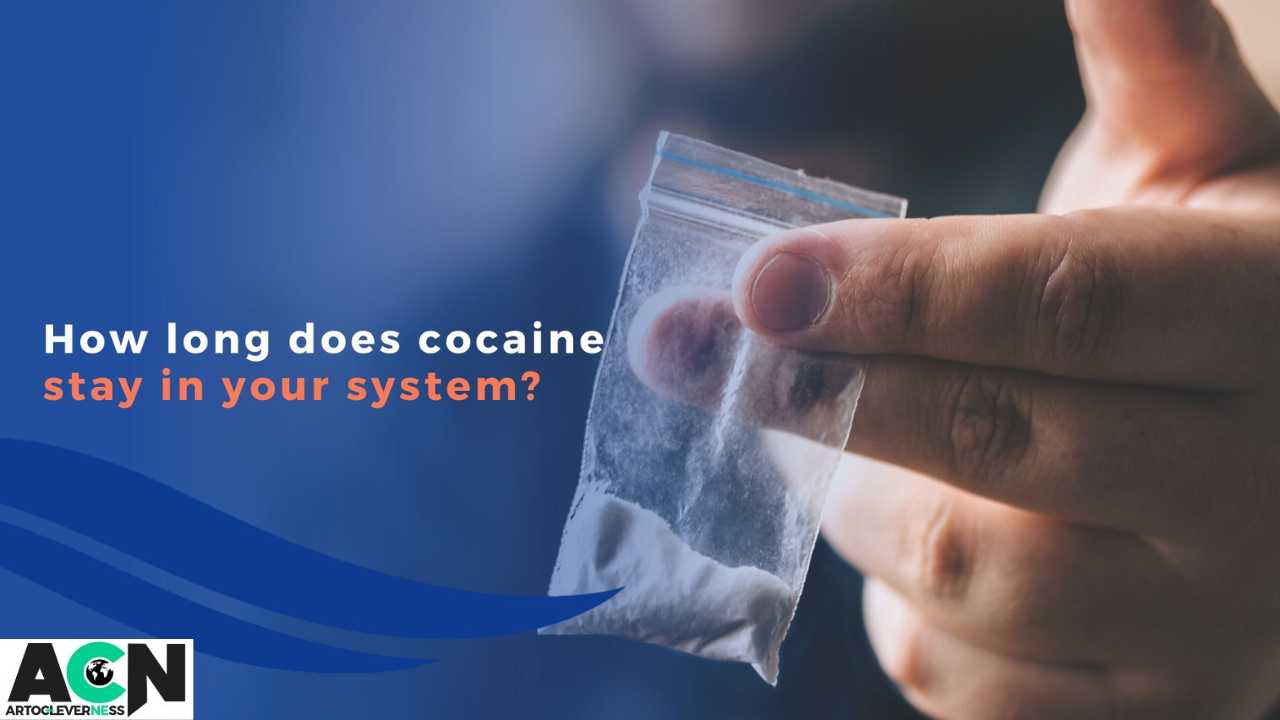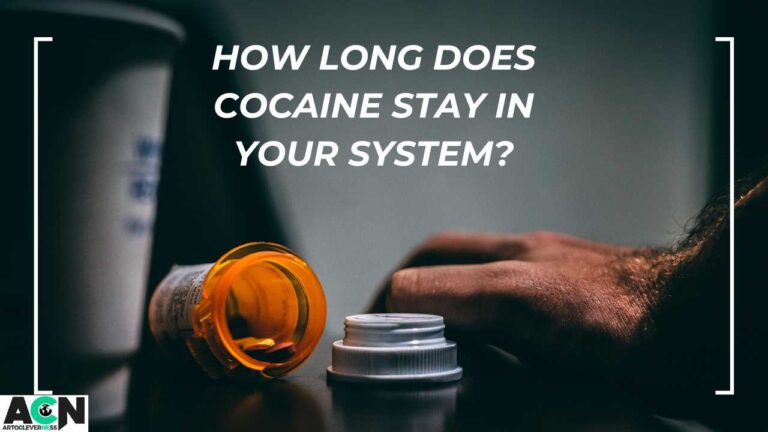Cocaine still goes down as one of the most potent stimulants as far as the physical and psychological welfare of an individual is concerned. Perhaps you are a user, your friend, or a family member, and you may be asking questions such as, “how long does Cocaine stay in your system?”
The time it takes for the cocaine substance to be expelled from your body depends on The form of the substance, powdery substance or crystal substance.
The method of administration, and Frequent users of the substance. Fortunately, it is possible to assume some factors that may dictate the time the drug is measurable in the body.
You will also learn about different tests for cocaine or the immediate consequences and the long-term repercussions of cocaine on your body.
What is Cocaine?
Cocaine is a legal categorization drug with great intensity from the leaves of the coca plant. It is commonly found in two forms: powder cocaine and crack cocaine as its main drugs of use.
Powder cocaine is most often eaten through snorting or injected or even put in the mouth and rubbed on the gums; crack cocaine is smoked.
They both trigger the production of Dopamine in the brain and hence cause feelings of happiness and energy.
Effects That Cocaine Has On The Body
Cocaine, on the other hand, is classified under central nervous system stimulants that have effects such as massive boosts in energy and sexual urge, pride, and courage.
This is because the drug will help stop Dopamine – the neurotransmitter that disburses pleasure and rewards in the brain from being reabsorbed by the brain cells.
As these effects are exciting, they lead to the following physical side effects: These complications include increased pulse rate, blood pressure, and body temperature.
High’s Duration
The ‘rush’ produced by cocaine is sharp and short-lived, usually taking 5 to 30 minutes, depending on the route of administration.
That is why smoking or injecting cocaine gives a person a more acute and short-lived effect that lasts only 5 to 10 minutes. Cocaine, when taken by snorting, offers a high for about 15-30 minutes.
Why It Matters to Know How Long Cocaine Will Remain in Your System?
It would be appropriate to know how long cocaine remains in the body, especially for several reasons. If one is being subjected to a drug test, they will be on the right side if they work within the detection window so that they will be ready for the consequences.
As for those people who take cocaine and who care, or at least are worried about the possible health consequences it may cause, it is essential to know how long this substance stays in the body.
Frequency and Quantity used
The frequency and quantity, as well as the amount of cocaine consumed, will determine the amount of time the substance will remain in your system.
This is the reason why the body may clear this drug more quickly in the occasional user than in the chronic users. It prolongs the detection time because the more the commodity is and frequently consumed, the more it accumulates with its metabolites in the body system.
Purity of the Cocaine
This is even more so for cocaine since its purity, which has been found to vary significantly, influences detection times.
Focusing on purer substances might lead to increased blood levels of the drug and, therefore, might exacerbate the time it takes for the drug to be metabolized and eliminated.
Self-metabolism and other health issues
Cocaine’s metabolism and dosage amount vary from person to person because each person has a unique system.
Other factors that will determine the time period that the substance will be detected include age, weight, general health, and liver health.
How Long Does Cocaine Stay in Your System?

Ever it remains an effective drug with different ways how it can be tested in the body with varying periods of completion.
For instance, one can test positive for cocaine through a urine test for up to 3 days after using the substance, through a blood test for one to two days, a saliva test for one to two days, and a hair test for several months.
Duration of powder cocaine in your system
When snorted or injected, stimulate is generally found in urine for up to 3 days for occasional users, though this can take up to 1 or more weeks for habitual users.
In blood and saliva, it may remain detectable for up to 48 hours; however, it may be detectable in hair for several months.
How Long will crack cocaine show up in your system?
In comparison with particle cocaine, which is snorted, crack cocaine, which is smoked, is metabolized and excreted at a faster pace. But it can be found in the urine for 1 to 3 days in a while for consumers and more for chronic users.
The detection period for crack cocaine is up to 48 hrs found by blood and saliva tests, while, like other forms of cocaine, it is found in hair samples for several months.
How Long Does Cocaine Stay in Your System: Lick Test?
The saliva test, also known as the “lick test,” can identify cocaine for one to 2 days of its use. These tests are even more accurate, compared to the blood tests and are noninvasive in their nature, and offer a speedy method of identifying recent cocaine use.
How Long Does Cocaine Stay in Your Hair?
Detection in Hair
The hair test is somehow more accurate since it can confirm cocaine use up to several months after the last time the substance was taken.
This method is particularly suitable for the determination of long-term or chronic users as cocaine and its metabolites are located in the hair shaft and are retained there for longer durations.
Short-Term Effects of Cocaine
Such effects of using cocaine include heightened pulse rate, above-normal blood pressure, and elevated body temperature.
Psychologically, the users tend to develop extreme happiness, assertiveness, and mental activity. Since the effects are temporary, the onset ranges from 5 to 30 minutes based on how one uses the substance.
Risks of Overdose
A critical effect of cocaine is that overdose is possible with its consumption. Cocaine poisoning and overdose are fatal at any time.
However, it can occur even at first-time use, especially when it is in combination with other drugs or the user is usually a patient. Signs of a cocaine overdose include chest pains, convulsions, trouble breathing, and passing out.
Long Term Effects of Cocaine
Cardiovascular Issues
Cocaine abuse results in long-term adverse effects such as cardiovascular disorders, for example, heart attack, hypertension, and arrhythmias. Daily use also exerts considerable pressure on the heart and blood vessels, raising the chances of heart disease and other conditions among the user.
Respiratory Problems
Those who take cocaine through smoking are bound to suffer from severe respiratory problems in the long run. The psychological effects, primarily, crack cocaine smoking is “holy,” which may cause lung inflammation or scarring and lead to chronic obstructive pulmonary disease (COPD), lung infections, or respiratory failure.
Mental Health Impacts
- Addiction and Dependency: It is an addictive drug, and therefore, after a while of its use, the body will become dependent on it. Cocaine addiction refers to the pathological use of a specific substance with the necessity to take a dose of the substance, leading to its undesirable effects.
- Cognitive Decline: There are long-term consequences of using cocaine as the drug reduces one’s ability to concentrate and makes patients have poor memory and decision-making ability. Detailed shortcomings of elongated users include drawbacks in concentration & learning process plus focusing on new information.
Symptoms that are Shared Between Cocaine Users and Other Addicts
Behavioral Symptoms
Behavioral manifestations of cocaine dependence are a pre occupation trend towards the procuring and utilization of the substance, lack of adherence to conventional duties, and promiscuity.
Users may also present with changes in their interpersonal relationships, start avoiding their loved ones, and become more private about their doings.
Physical Symptoms
Some of the physical manifestations of cocaine addiction include thinning of the body, constant nose bleeding, puncture scars in case of injection uses, and a weakened body immune system.
Daily consumers also suffer from poor concentration, confusion, depression, fatigue, and insomnia, and they are easily affected by diseases.
Detoxification Process
The first process of rehabilitation of individuals dependent on cocaine is the process of withdrawal, during which the patient’s body is Purged of the Substance.
This process can be demanding because withdrawal symptoms come with high-intensity cravings, anxiety, and depression.
Rehabilitation Programs
Cocaine addiction is a continuous process, which therefore means that the patient will need support all the time so that they can get out of it.
Many people think that after they finish rehabilitation, they do not need support anymore, and they are wrong because it is beneficial to attend therapy sessions, support meetings, and other forms of programs that will help a person stay sober.
Conclusion
Thus, in this article, we have examined the critical parameters of cocaine use, including learning about the substance itself, how it impacts the body, and how different parameters dictate how long it is present in the system.
We have also examined the detection times of various tests, such as blood, urine, saliva, and hair, and how the multiple times are influenced by use frequency, level of purity, and health.
(FAQs)
Is Cocaine Possible to Trace After the First Time Use?
Cocaine can always be found in a person’s system, even after the use of the drug once. The detection window dramatically varies with the type of test used. Still, the average duration is three days for urinary cocaine, two days for blood cocaine, 1-2 days for saliva cocaine, and several months for hair cocaine despite the occasional use only.
What Can I do to Hasten the Clearance of Cocaine in my Body?
Currently, there is no safe or effective way to accelerate or increase the rate of detoxification of cocaine out of your system. Cocaine has to be metabolized and expelled from the body by the natural system of the body, and this process can take weeks.
Does Secondhand smoke from crack cocaine show up in a drug test?
Thus, one cannot get a positive crack cocaine test after passive exposure to the smoke. Still, it is possible in exceptional circumstances such as prolonged and close exposure to the Stimulant.


